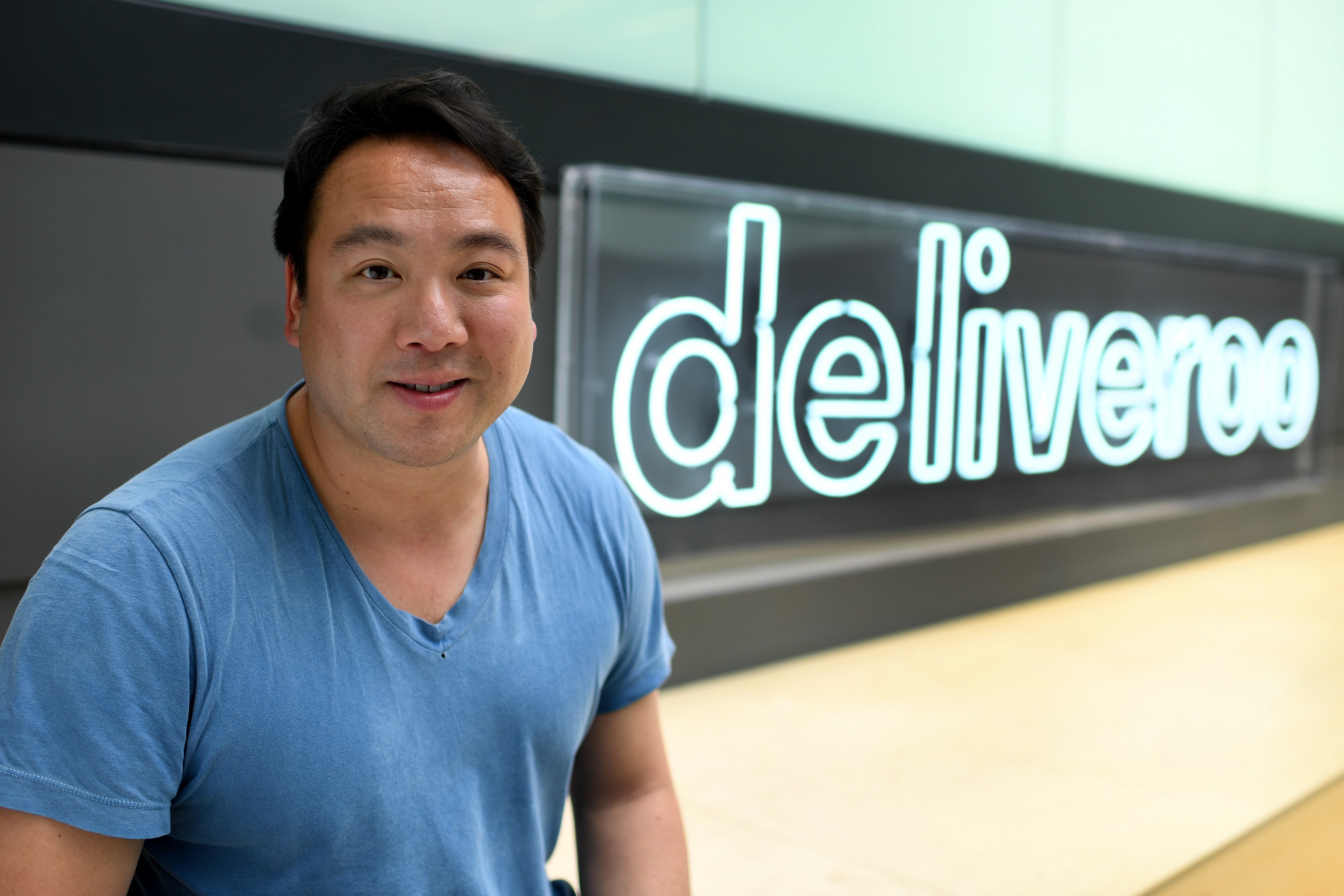Deliveroo boss says food price inflation easing after takeaway costs climbed
Will Shu said some consumers started viewing food delivery as non-essential when the cost-of-living crisis worsened.

Your support helps us to tell the story
From reproductive rights to climate change to Big Tech, The Independent is on the ground when the story is developing. Whether it's investigating the financials of Elon Musk's pro-Trump PAC or producing our latest documentary, 'The A Word', which shines a light on the American women fighting for reproductive rights, we know how important it is to parse out the facts from the messaging.
At such a critical moment in US history, we need reporters on the ground. Your donation allows us to keep sending journalists to speak to both sides of the story.
The Independent is trusted by Americans across the entire political spectrum. And unlike many other quality news outlets, we choose not to lock Americans out of our reporting and analysis with paywalls. We believe quality journalism should be available to everyone, paid for by those who can afford it.
Your support makes all the difference.The boss of takeaway giant Deliveroo has said the “weight of inflation” is starting to reduce, after the company revealed that higher food prices helped drive up average takeaway spending.
Will Shu, the platform’s founder and chief executive, said some consumers started viewing food delivery as non-essential when the cost-of-living crisis worsened.
He told the PA news agency: “At the end of the day, what happened last year and at the tail end of 2022 is that things got unaffordable for certain segments of consumers.
“They want food delivery, but what was a regular way of living their lives became somewhat discretionary.”
Food inflation was outpacing wage inflation by about two to one, which squeezed consumer spending power, he said.
But he said “the weight of inflation is coming down and it is now getting closer to parity with wage inflation”, which would be “positive” for the group.
Meanwhile, Mr Shu said Deliveroo has not been affected by delivery riders going on strike in recent weeks over pay and working conditions.
He said the strikes were sector-wide, adding: “We think the vast majority of riders worked and wanted to work, therefore we experienced minimal impact.”
But he stressed that the company takes “very seriously” any issues raised by riders.
“We have a rider engagement team, we meet with riders in person, we also work with the GNB Union to make sure riders have a formal voice in the company,” he said.
The takeaway giant, which operates in 10 countries and works with around 135,000 riders across the world, has faced court battles over the employment status and rights of its riders.
In the UK, the Supreme Court ruled last year that riders are not employees of Deliveroo, and therefore are not workers entitled to trade union rights such as collective bargaining.
Meanwhile, the ‘Deliveroo Shopping’ feature was launched in November, with the app partnering with major retailers to deliver items across categories including pharmacy, toys and petcare.
- Dog treats
- Soy wax candles
- Hand cream and soap
Mr Shu said the most popular items since the feature launched include dog treats, soy wax candles, and hand cream and soap.
He also revealed that the top-trending cuisines have been American, Mexican and Hawaiian food, while the most popular grocery items ordered through the app were bananas, eggs, and semi-skimmed milk.
The group posted a loss of £31.8 million for 2023, significantly smaller than the £294.1 million loss reported for 2022.
It said the number of orders decreased by 3% year-on-year to 290 million,
But the annual gross transaction value (GTV), which means the total cost of people’s food baskets plus delivery and consumer fees, rose by 3% to £7.1 billion.
And the average cost per takeaway order increased by 6% from £22.90 to £24.30, which was due to price inflation and optimising consumer fees last year.
The business reported a slightly stronger performance in the UK and Ireland where the number of orders edged up by 1%, and GTV jumped by 8% year-on-year.